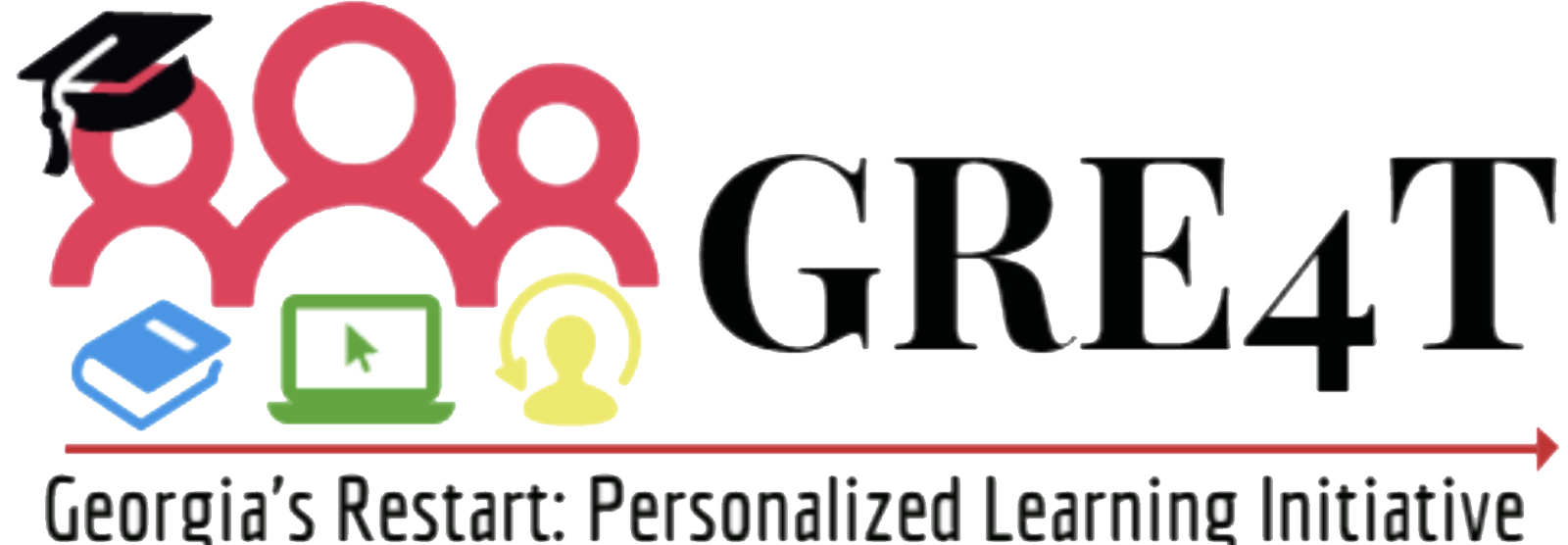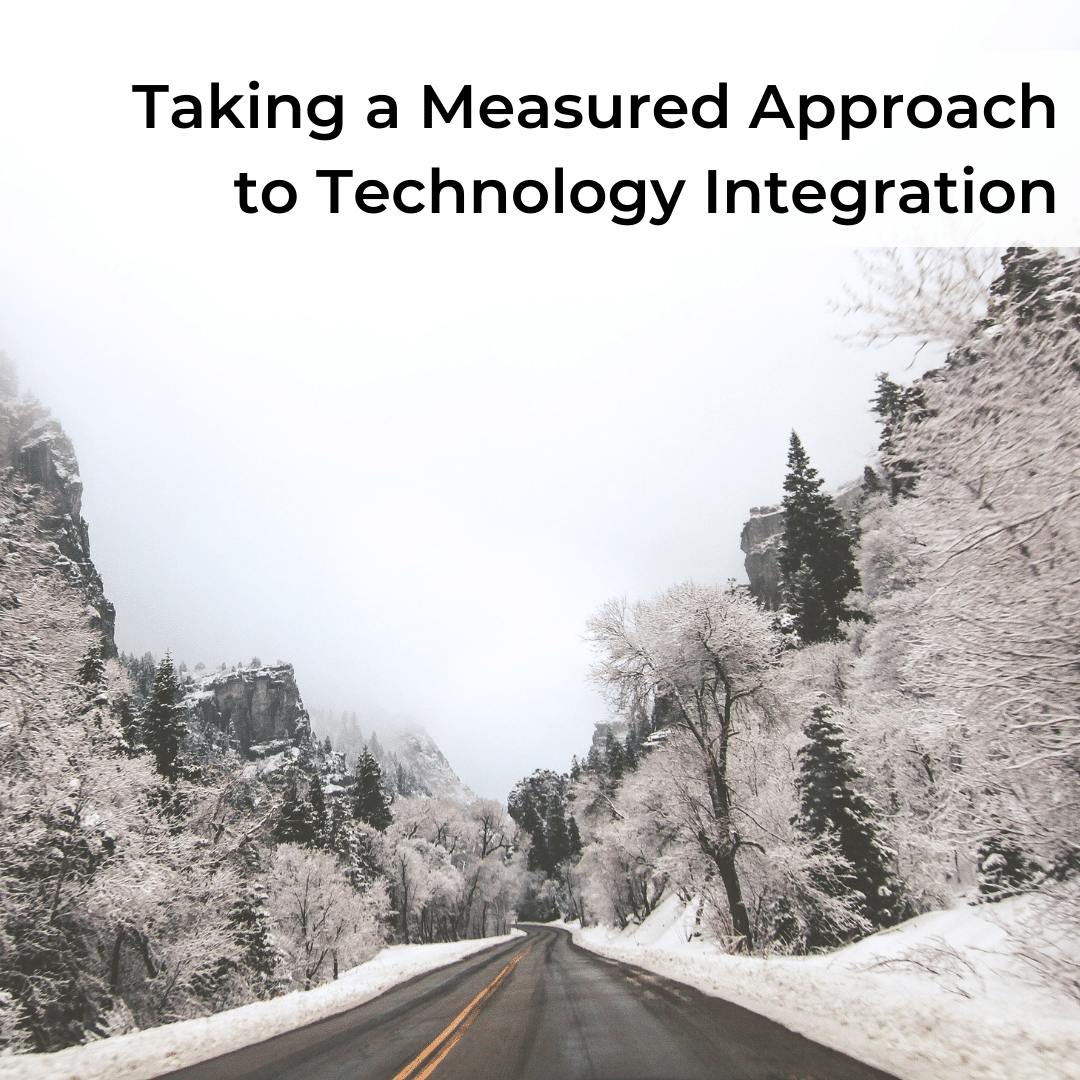Personalized Learning
Georgia's GRE4T Initiative

Georgia’s ReStart: Embrace, Engage, Expand, and Enhance Learning with Technology Initiative
iTeach is proud to be a member of the consortium of "GRE4T" educational agencies supporting the "Reimagining of K12" schools in Georgia. As the primary agency providing instructional coaching to schools and teachers, iTeach will work across the state to "improve leadership and educator professional learning to support engagement and personalized learning."
If you have questions about personalized learning and would like to speak with us about how it could improve the teaching and learning in your school or district, we'd love to speak with you.
Let's chat about personalized learningKeep reading below to learn more about Georgia's vision for personalized learning; how it was conceived by former iTeach Director, Dr Stephanee Stephens, and KSU's Interim Assistant Vice President for Curriculum and Academic Innovation and Professor of Instructional Technology, Dr Anissa Vega, how and why the conceptual framework was developed, and how best practices are being developed, tested, and refined.
A Vision for Personalized Learning in Georgia K-12 Schools
"Personalized learning is an educational paradigm shift that values learner differences
and
harnesses technology to allow the educator and learner to co-plan an individualized
educational experience. Since personalized learning is an educational paradigm shift,
it
cannot be reduced to simply a new initiative or instructional strategy. A paradigm
shift
implies a change to the values on which the education system is built and therefore
the
roles of all stakeholders in the system must also change. Personalized learning is
an ideal
for which we will strive. The definition of the term stated above will evolve as research
and
practice in the field develops. This process requires flexibility, comfort with uncertainty,
and the ability to take risks."
A Batch of One: A Conceptual Framework for the Personalized Learning Movement
"Variation in definitions and models of personalized learning has created confusion
and disagreement among practitioners and scholars. However, personalized learning
continues to be
broadly promoted and funded within schools. This paper offers an inclusive definition
of what is happening within the personalized learning movement and aims to be inclusive
of diverse epistemologies and cultures. To do this, we revisit the seminal metaphor
of the factory model of schooling and follow contemporary changes seen in manufacturing
to highlight similar trajectories seen in both fields and justify this new definition,
which states that personalized learning is the mass customization of learning through
a unique combination of automated and student-centered pedagogies. We then propose
the Personalized Learning Continuum Framework (PLCF) as a conceptual framework for
this movement to help practitioners and researchers describe the relationships between
various models as a function of Academic Learning Time, pedagogical methods founded
on contrasting philosophical traditions, and the distribution of power in learning."
Blended and Online Practices for Personalized Learning
"The 2017 National Educational Technology Plan asserted that personalized learning and blended learning are key strategies to technology’s transformation of all schools across the country (US Dept. of Education, 2017). While blended learning has been well conceptualized and communicated, personalized learning has been leaving educators feeling confused in concept and action. To help facilitate a common language and understanding for K-12 practitioners and researchers, this special issue dives into the connections between personalized learning and K-12 blended and online learning from conceptualization, to teacher preparation, and into teacher actions. A theme that pops up through the issue is the value of planning time and confidence as influences on teacher reception of the personalized learning movement (Tan & Chong, 2018). Additionally, the authors in this special issue share practices that represent the many roles and environments being impacted by the personalized learning movement, and they call us all to engage in future study of this emergent field."
Read the JournalPersonalized Learning Endorsement
The School of Instructional Technmology and Innovation is now offering a Personalzied Learning Endorsement (PLE) program! The purpose of the PLE is to provide learners with foundational understanding of what personalized learning is, and the competencies necessary to effectively personalize a classroom or course. Learners demonstrate ten competencies as outlined by the Georgia Professional Standards Commission (GaPSC) standards and plan how to personalize their own classrooms.
Learn more about the PLEWant to read up on Personalized Learning? Check out some of these resources to get you up to speed!
Dawson, P., & Guare, R. (2014). Interventions to promote executive development in children and adolescents. In Handbook of Executive Functioning (pp. 427-443). Springer New York.
English, F. & B. Steffy (2001). Deep Curriculum Alignment: Creating a Level Playing Field for All Children on High Stakes Tests of Accountability. Scarecrow Press, Lanham, MD.
ISTE, (2017) ISTE Standards for Students and Educators. Retrieved from https://www.iste.org/standards/whatare-the-iste-standard.
Kuhn, T. S. (1970). The Structure of Scientific Revolutions, 2nd enl. ed. University of Chicago Press.
Jenkins, S., Williams, M., Moyer, J., George, M., & Foster, E. (2016) The Shifting
Paradigm of Teaching: Personalized Learning According to Teachers. KnowledgeWorks
retreived from
http://www.knowledgeworks.org/sites/default/files/u1/teacher-conditions.pdf
Meltzer, L. (2014). Teaching executive functioning processes: Promoting metacognition, strategy use, and effort. In Handbook of Executive Functioning (pp. 445-473). Springer: New York. Center on the Developing Child (2012). Executive Function (InBrief). Retrieved from www.developingchild.harvard.edu.
Patrick, S., Worthen, M., Frost, D., & Gentz, S. (2016). Meeting The Every Student Succeeds Act’s Promise. iNACOL retrieved from https://www.inacol.org/wp-content/uploads/2016/10/iNACOL_MeetingESSAsPromise.pdf
Patrick, S., Worthen, M., Frost, D., & Gentz, S. (2016). Promising State Policies to Advance Personalized Learning. Retrieved from https://www.inacol.org/wp-content/uploads/2016/09/iNACOL-Promising-State-Policies-toAdvance-Personalized-Learning-web.pdf
Porter, A.. and Smithson, J. (2001). Defining, Developing, and Using Curriculum Indicators. CPRE Research Reports. Retrieved from http://repository.upenn.edu/cpre_researchreports/69
Rhode Island Office of Innovation, (2016). Creating a Shared Vision in Rhode Island
for Personalized Learning. White paper retrieved from
http://eduvateri.org/projects/personalized/personalizedlearningpaper/
Sulla, N. (2017). Building Executive Function: The Missing Link to Student Achievement. Routledge: New York.
Wolfe, R. E., & Poon, J. D. (2015). Educator Competencies for Personalized, Learner-Centered Teaching. Jobs For the Future and the Council of Chief State School Officers. Retrieved from http://files.eric.ed.gov/fulltext/ED560785.pdf
Zmuda, A., Ullman, D., & Curtis, G. (2015). Learning personalized: The evolution of the contemporary classroom. John Wiley & Sons.
















